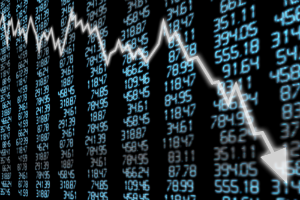 At some point or another, we’ve all wished that we had a crystal ball that could tell us what’s going to happen next. The world can be a hell of a scary place sometimes, and having an idea of what the future may hold can be a lifesaver. Nowhere is this more applicable than with the economy.
At some point or another, we’ve all wished that we had a crystal ball that could tell us what’s going to happen next. The world can be a hell of a scary place sometimes, and having an idea of what the future may hold can be a lifesaver. Nowhere is this more applicable than with the economy.
The global financial system is a force that none of us have any substantial control over. All we can hope to do is ride the booms and busts of our economy as best we can. However, if we can catch even a small glimpse of what’s to come, we can brace ourselves and our families for the hard times that are ahead.
Obviously, when an economy is enduring a downturn it affects every facet of society and the signs are everywhere, but some of these trends actually begin before the economy collapses. Here are a few that you may not have been aware of.
Cardboard Box Index
There are many ways to measure the health of an economy, but few are as accurate as the cardboard box index. After all, just about every product we buy has graced the inside of a cardboard box at some point, so the amount of cardboard that is being produced is a pretty solid indicator for the health of the economy.
If cardboard manufacturers are experiencing good growth and exceptional sales, then the economy is probably improving, and the opposite is true when the economy is falling apart. While GDP growth is often reported quarterly, cardboard production and the profits of cardboard manufactures often shift downward before a recession becomes official.
Trash Index
Just as cardboard production can give us an idea of how much we’re buying, so too does the amount of trash we throw away. When the economy is on the up and up, we buy more stuff and we’re more willing to replace something than to fix it. This means that we’re also throwing out more products in a good economy. When the trash index was first discovered in 2010, it was found to be more accurate in predicting economic trends than metal, lumber, or fuel consumption.
R-Word Index
Obviously, when a recession is afoot everyone is talking about it, especially the news. You’ll hear and read that word on the news much more when the economy is tanking, which shouldn’t come as a surprise to anyone. However, usage of the word ‘recession’ often spikes in the weeks and months before a recession is actually declared.
Since 1990, The Economist magazine has been maintaining the R-Word index, which keeps track of how many newspaper articles feature the word ‘recession’. While it’s not 100% percent accurate, so far it has predicted the recessions of 1990, 2001, and 2007.
Skyscraper Index
Much like the cost of housing, the construction of extremely tall skyscrapers is a good (although controversial) indicator for an economic bubble. Many of the world’s tallest skyscrapers were built just before major financial collapses throughout the 20th century, so if you hear about a new record-breaking tower being built in your city, look out.
Champagne Index
One of the most accurate harbingers of an economic collapse is the sale and consumption of champagne. Since this beverage is often reserved for celebrations, it is consumed the most when the good times are rolling in a big way. Unfortunately, these are the same times that precede major market crashes. Essentially, the Champagne Index is really just a delusion index. We drink lots of bubbly when financial bubbles are about to burst. In recent years, the sale of French Champagne has gone through the roof at the height of the dotcom bubble in 1999, and just before the housing crash in 2007.
While none of these indicators are perfect, they all seem to be right most of the time, and they can certainly beat a coin flip by a wide margin. If you only relied on one of these trends then you would stand a good chance of looking like a fool. However, if you pay close attention to all of them, then you should be able to reasonably predict when rough times are ahead.
This article was originally published at Ready Nutrition™ on September 9th, 2015







How about the LSI? Lead sales index. Up – up – up …..
You have only told us half of the information. Now, where can we find these indexes? For example; I tried searching for “cardboard box index”. The sites give the same definition that you used, but no one tells where to find it. I don’t even know who makes cardboard boxes. Much less, where each publishes their production numbers or who consolidates all the information into a chart. One said the Fed reserve watches this too. So I am sure they don’t crunch their own numbers.
The best index is when your money loses its value, like a market crash. Too many people are talking doom and gloom for a while now. Don’t expect money to go down till after the next election as the powers that are will do everything they can to make Obama look good till the end, just like the lowest unemployment rate at 5.1% now.
Uh, yeah, nice story but we have been yo-yoing between recession and depression for the better part of 7 yrs. U6 numbers cannot be manipulated, unlike all the other rosy Soetoro Economic Recovery numbers being forced on us.